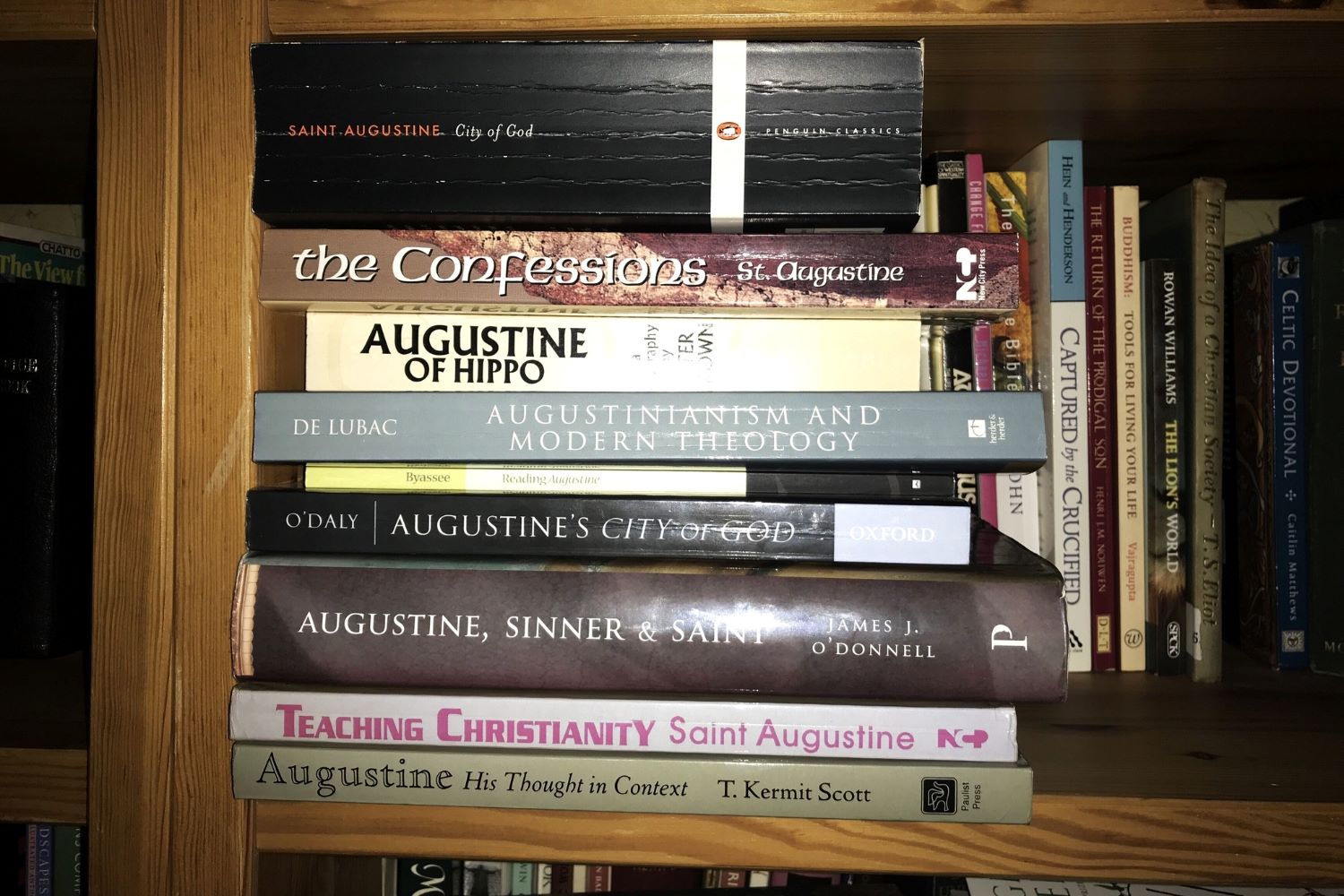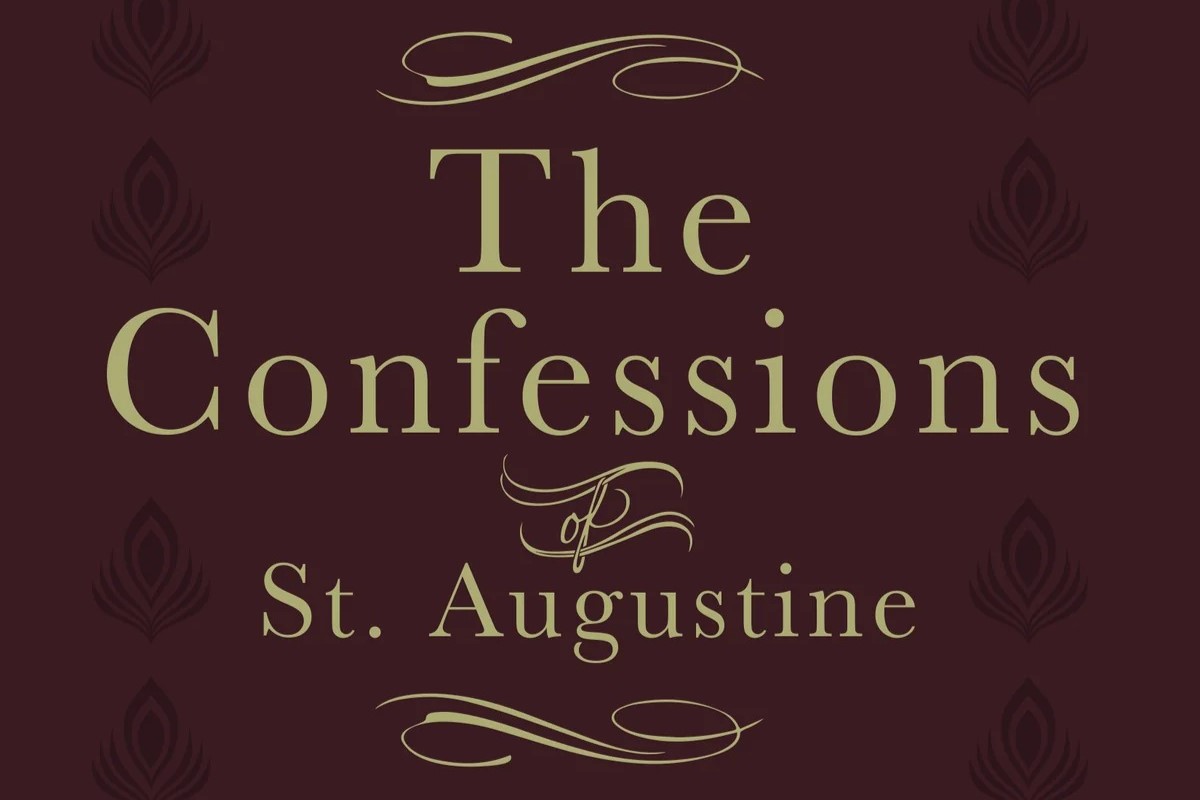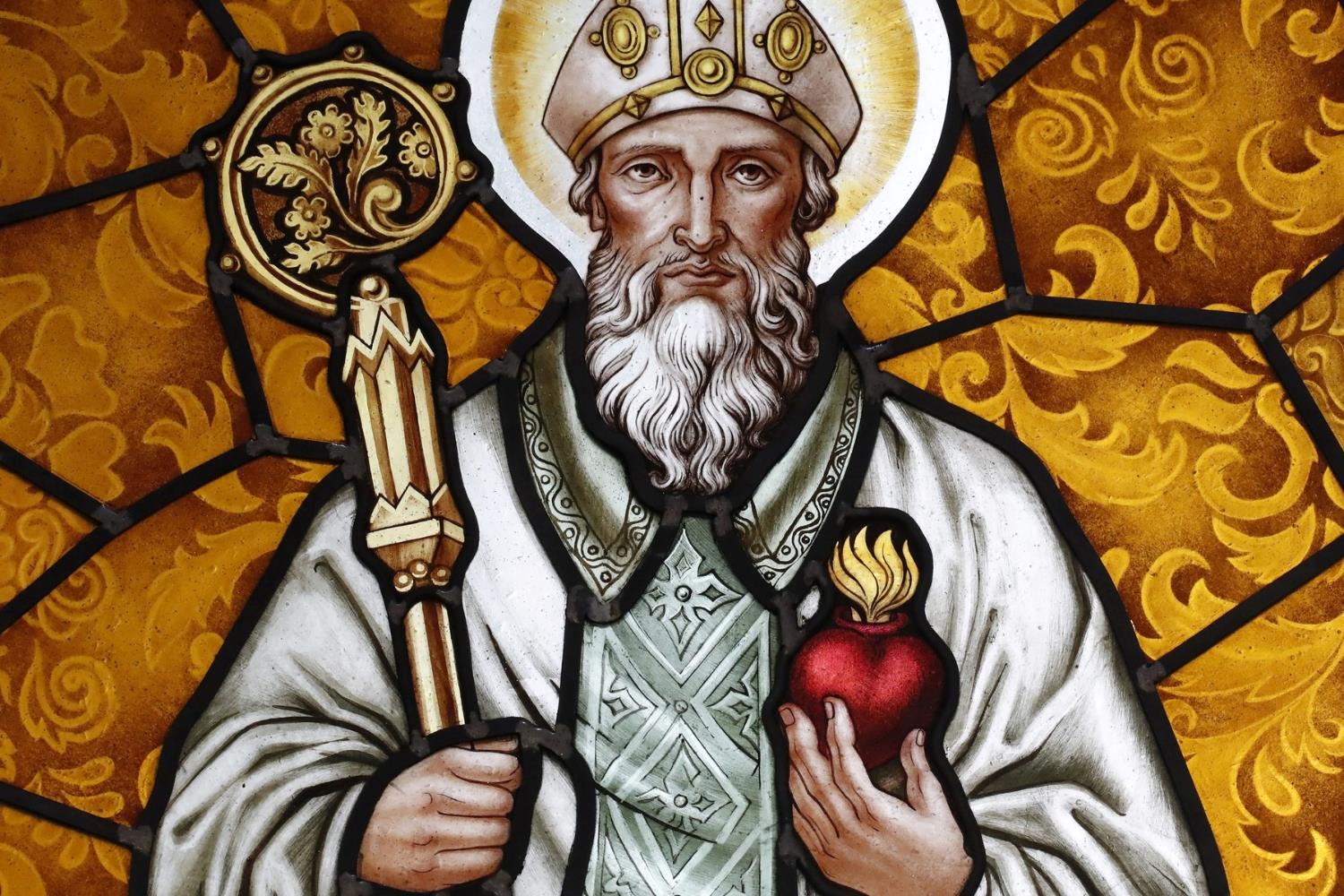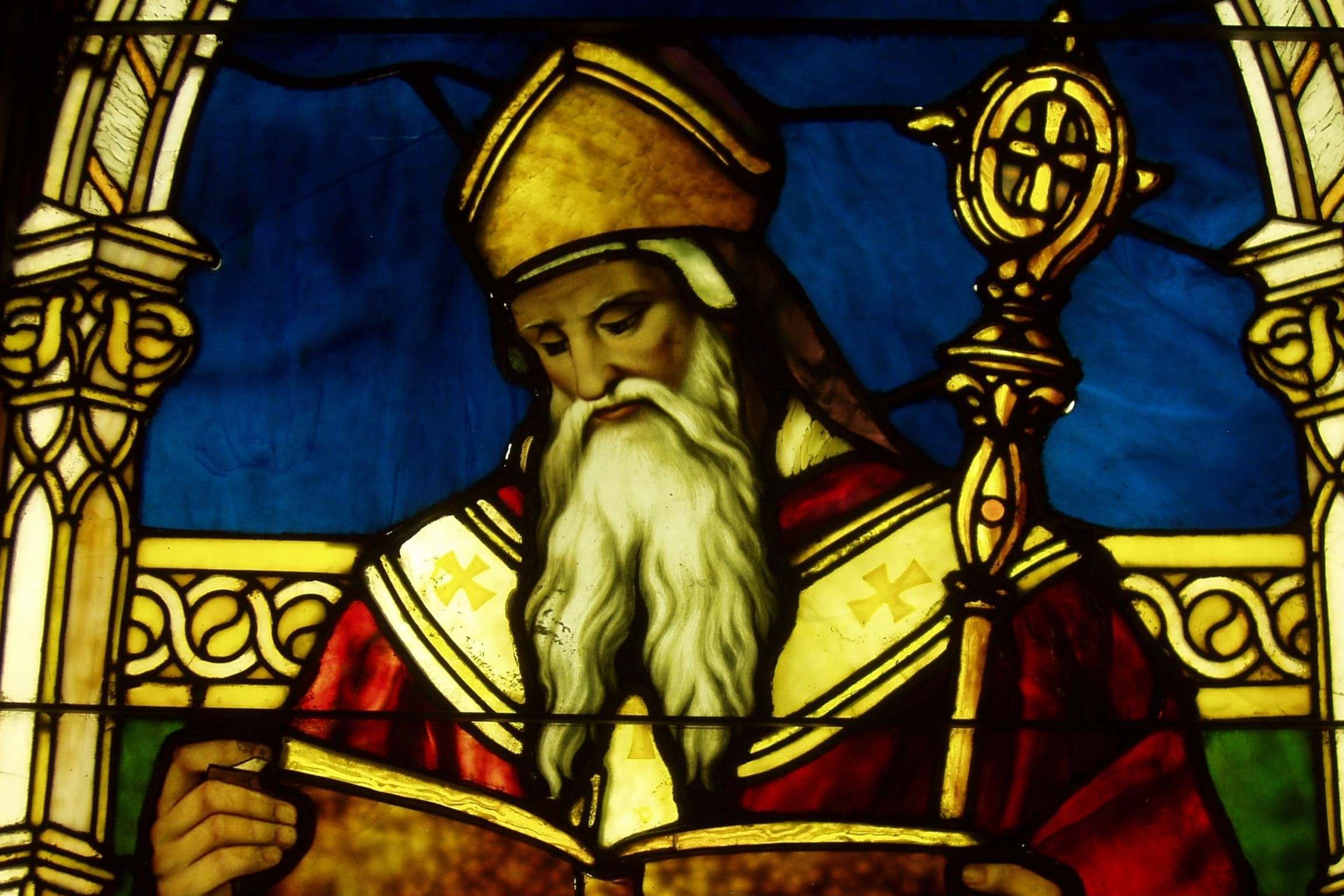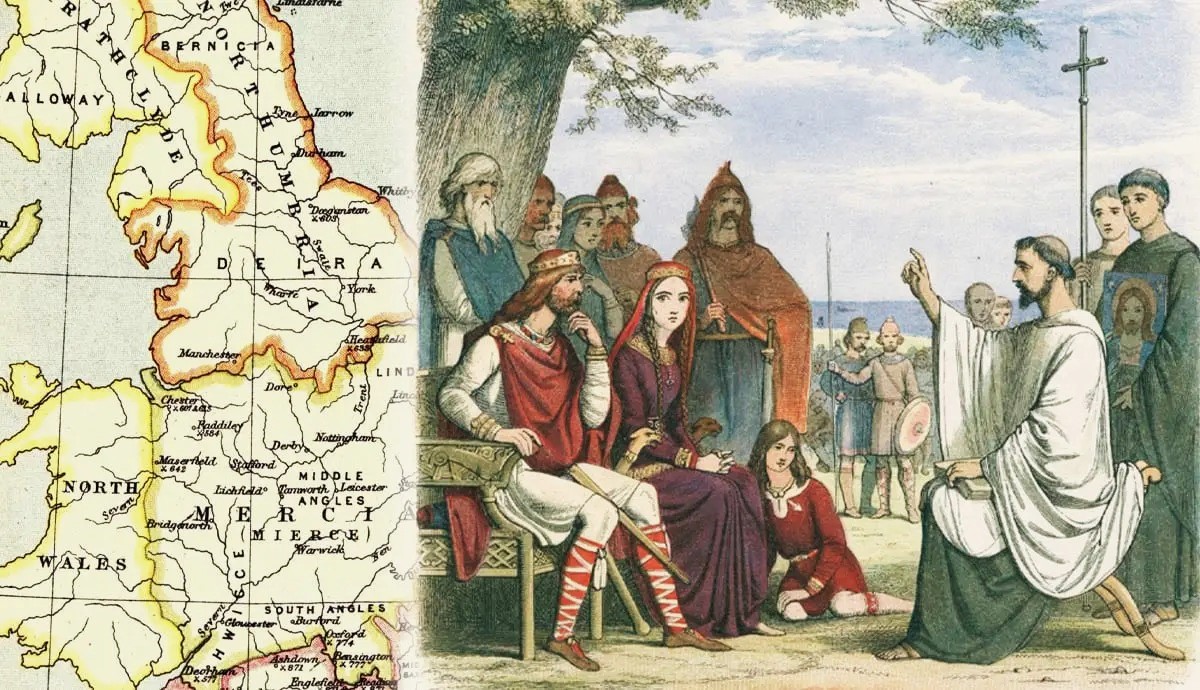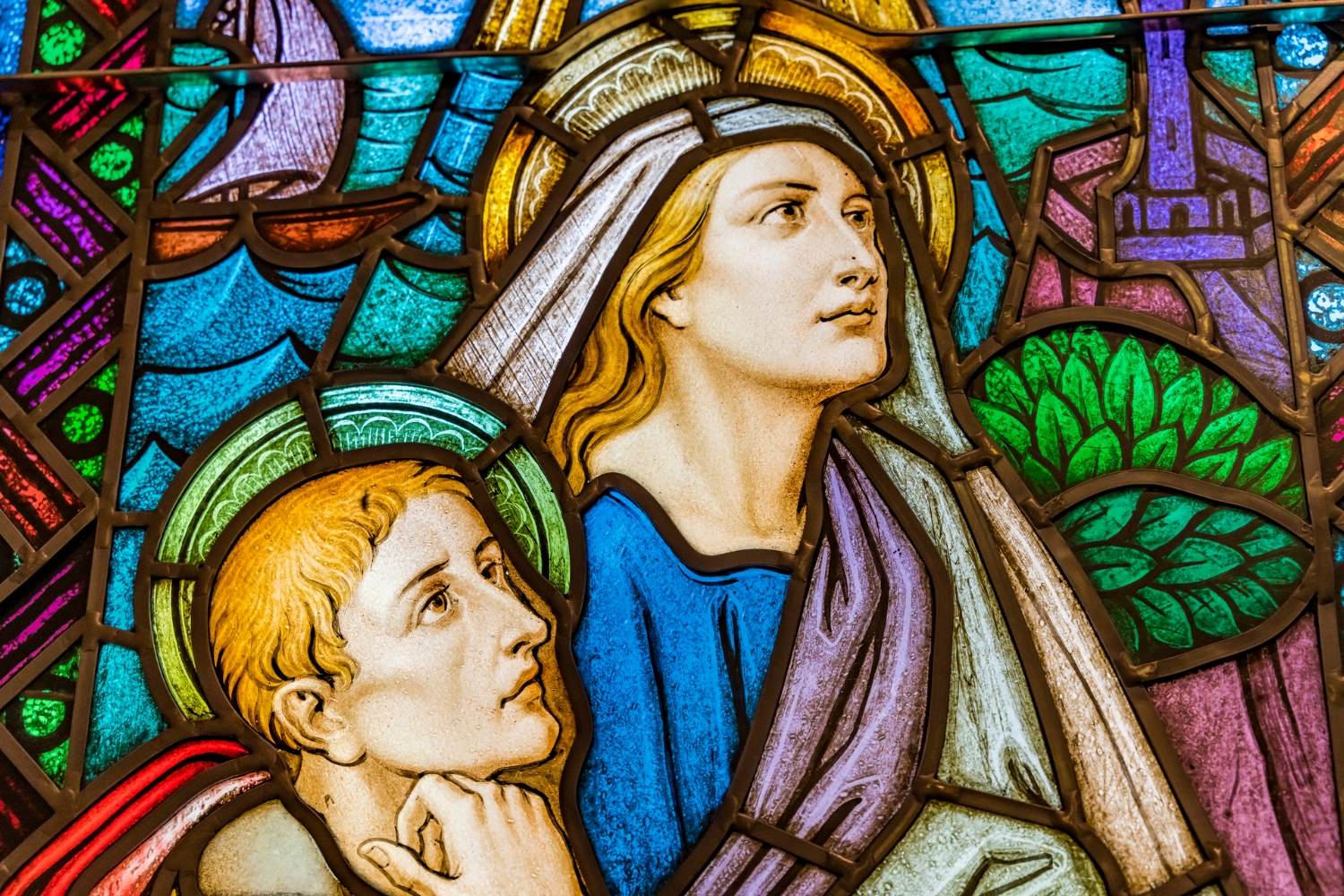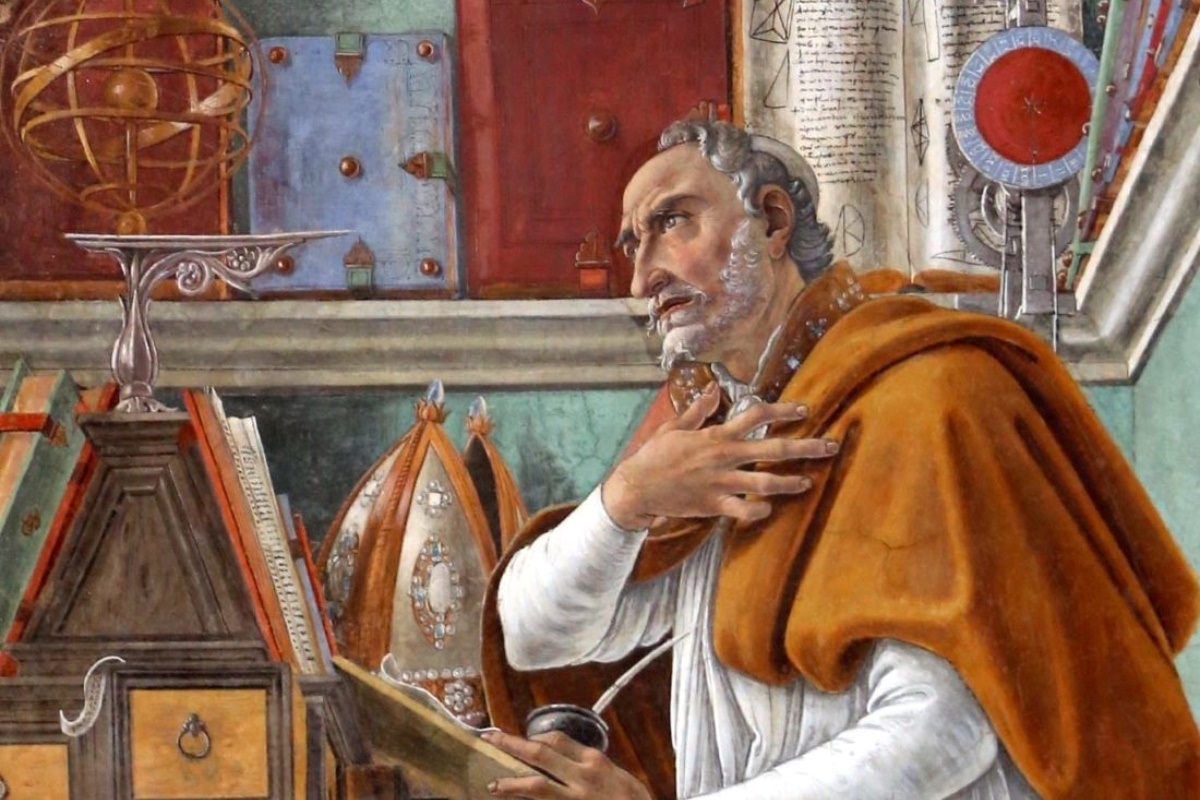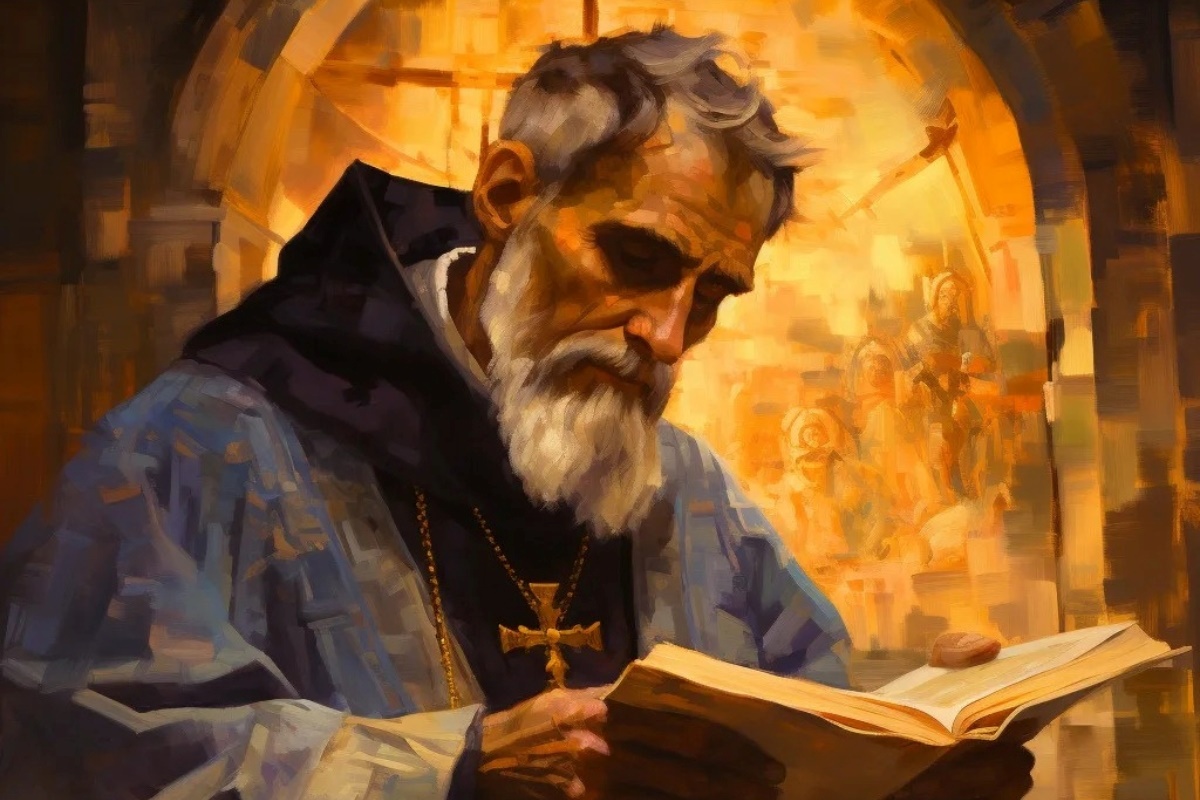Home>Theology and Spirituality>When Did Saint Augustine Write Predestination Of The Saints
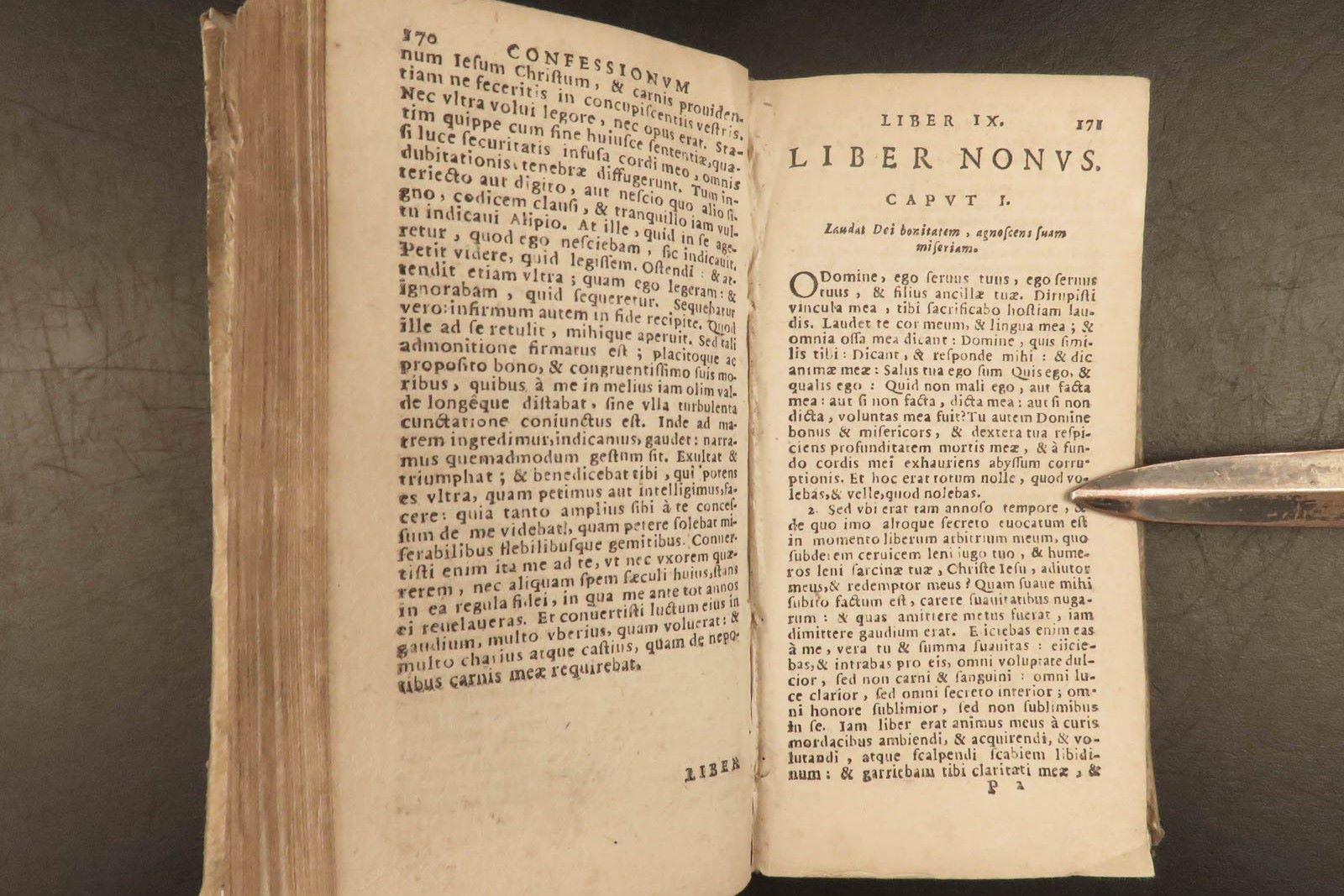

Theology and Spirituality
When Did Saint Augustine Write Predestination Of The Saints
Published: February 10, 2024
Jason DeRose, Managing Editor at Christian.net, uses his expertise in religion and journalism to deepen understanding of faith's societal impacts. His editorial leadership, coupled with a strong academic background, enriches the platform’s diverse content, earning him recognition in both journalism and religious circles.
Discover the theological significance of Saint Augustine's "Predestination of the Saints" and its impact on theology and spirituality. Explore the historical context and implications of this influential work.
(Many of the links in this article redirect to a specific reviewed product. Your purchase of these products through affiliate links helps to generate commission for Christian.net, at no extra cost. Learn more)
Table of Contents
Introduction
Saint Augustine, also known as Augustine of Hippo, was a prominent theologian and philosopher whose profound influence on Christian thought continues to resonate through the ages. His theological insights and philosophical musings have left an indelible mark on the development of Western Christianity, shaping the doctrines and beliefs of countless individuals and religious institutions.
Born in the Roman province of Numidia in 354 AD, Augustine's early life was marked by a quest for knowledge and spiritual fulfillment. His intellectual curiosity and fervent pursuit of truth would eventually lead him on a transformative journey that would not only redefine his own life but also leave an enduring impact on the course of Christian theology.
As we delve into the life and contributions of Saint Augustine, we embark on a captivating exploration of a man whose intellectual prowess and spiritual fervor continue to inspire and challenge believers and scholars alike. From his early years in North Africa to his eventual ascendance as one of the most influential figures in Christian history, Augustine's legacy is a testament to the enduring power of faith, reason, and the relentless pursuit of divine truth.
In the subsequent sections, we will delve into the pivotal moments of Augustine's life, including his conversion to Christianity and the profound theological contributions that have solidified his place as a luminary in the annals of Christian thought. We will also explore the circumstances surrounding the writing of his seminal work, "Predestination of the Saints," and the far-reaching impact it has had on theological discourse and the understanding of divine sovereignty.
Join us on this illuminating journey through the life and works of Saint Augustine, as we unravel the complexities of his theological insights and the enduring legacy of a man whose intellectual acumen and spiritual fervor continue to captivate and inspire generations of believers and seekers of truth.
Read more: When Did Augustine Write
Early Life of Saint Augustine
Saint Augustine, born Aurelius Augustinus, entered the world on November 13, 354 AD, in the town of Thagaste, in the Roman province of Numidia (present-day Souk Ahras, Algeria). His father, Patricius, a pagan, and his devout Christian mother, Monica, provided the backdrop for his formative years. Augustine's early life was marked by a thirst for knowledge and a keen intellect that set him apart from his peers.
Despite his intellectual gifts, Augustine's early years were not without challenges. His family's modest means meant that his education was initially limited to local schools. However, his intellectual prowess soon became evident, and his parents, particularly his mother, recognized his potential and sought ways to provide him with a more comprehensive education.
At the age of 16, Augustine traveled to the city of Madaurus to pursue his studies in rhetoric, a decision that would significantly shape his future. His academic pursuits in rhetoric not only honed his oratorical skills but also exposed him to the philosophical currents of the time, igniting a passion for intellectual inquiry that would define his later pursuits.
As Augustine's intellectual horizons expanded, he journeyed to Carthage, a bustling center of learning and culture in the Roman Empire. It was here that he encountered the teachings of the Manichaean religion, a dualistic faith that captivated his imagination and temporarily led him away from his Christian upbringing.
The years in Carthage were marked by intellectual exploration, personal tumult, and a quest for meaning that would ultimately pave the way for his profound spiritual transformation. Augustine's insatiable thirst for knowledge and his relentless pursuit of truth would eventually lead him to embrace a life of philosophical inquiry and spiritual introspection, setting the stage for the remarkable journey that lay ahead.
The formative years of Augustine's life, characterized by intellectual curiosity, spiritual yearning, and the pursuit of truth, laid the groundwork for the profound theological insights and philosophical reflections that would later define his legacy. These early experiences would shape his worldview and set the stage for the transformative events that would unfold in the years to come.
Conversion to Christianity
Augustine's journey to Christianity was a tumultuous and transformative odyssey marked by intellectual inquiry, spiritual yearning, and a profound encounter with divine truth. His initial exposure to Christianity came through the steadfast faith of his mother, Monica, whose unwavering devotion and prayers would ultimately play a pivotal role in shaping Augustine's spiritual destiny.
Despite his mother's influence, Augustine's embrace of Christianity was not immediate. His intellectual pursuits and dalliances with various philosophical and religious ideologies, including Manichaeism, initially led him away from the Christian faith. However, his encounters with influential Christian thinkers and the stirring sermons of Ambrose, the Bishop of Milan, gradually began to unravel the intellectual and spiritual barriers that had long hindered his acceptance of Christianity.
The turning point in Augustine's conversion came during a moment of profound spiritual turmoil in the garden of a friend's house in Milan. Wrestling with the weight of his past transgressions and the relentless tug of divine grace, Augustine experienced a profound encounter with God that would forever alter the course of his life. In that transformative moment, he heard a child's voice urging him to "take up and read," prompting him to open the Scriptures and encounter the words that would penetrate the depths of his soul.
As he read the words of the apostle Paul, Augustine was overcome by a profound sense of clarity and conviction. In that transcendent moment, the seeds of faith that had been sown by his mother's prayers and nurtured by the teachings of Ambrose blossomed into a resolute commitment to Christ. Augustine's conversion to Christianity was not merely a cerebral assent to a set of beliefs; it was a profound spiritual awakening that permeated every fiber of his being and set him on a path of unwavering devotion to the Christian faith.
The impact of Augustine's conversion reverberated far beyond the confines of his personal journey. His spiritual metamorphosis would become a source of inspiration for countless individuals seeking meaning and truth. The depth of his intellectual inquiry and the sincerity of his spiritual quest continue to resonate with seekers and believers, serving as a testament to the transformative power of divine grace and the enduring allure of the Christian faith.
Augustine's conversion to Christianity stands as a testament to the profound intersection of intellect and faith, and the enduring power of divine revelation to penetrate the depths of the human soul. It is a story of redemption, renewal, and the unyielding pursuit of truth that continues to captivate and inspire seekers of spiritual enlightenment across the ages.
Theological Contributions
Augustine's theological contributions stand as a towering edifice in the annals of Christian thought, shaping the contours of doctrinal understanding and theological discourse for centuries to come. At the heart of Augustine's theological legacy lies a profound synthesis of Christian faith, philosophical inquiry, and spiritual introspection, yielding insights that continue to resonate with theologians, scholars, and believers alike.
Central to Augustine's theological framework is his profound exploration of the human condition and the nature of sin. His seminal work, "The City of God," delves into the intricacies of human nature, the concept of original sin, and the enduring struggle between the earthly city and the heavenly city. Augustine's nuanced understanding of the human predicament as marked by the fallibility of the will and the pervasive influence of concupiscence has left an indelible mark on Christian anthropology and soteriology.
Furthermore, Augustine's elucidation of divine grace and predestination has engendered profound theological reflection and debate. His grappling with the interplay between God's sovereignty and human free will, as expounded in works such as "On the Predestination of the Saints" and "On the Gift of Perseverance," has shaped the contours of theological inquiry and continues to provoke contemplation on the mysteries of divine election and human agency.
In addition to his profound theological reflections on sin, grace, and predestination, Augustine's contributions to the understanding of the Trinity and the nature of God have been instrumental in shaping orthodox Christian doctrine. His treatises on the Trinity, particularly "De Trinitate," offer a rich tapestry of theological insight into the triune nature of God, laying the groundwork for subsequent theological formulations and doctrinal explications.
Moreover, Augustine's profound engagement with the problem of evil and suffering has yielded enduring theological reflections that grapple with the complexities of human experience in a world marked by moral and natural afflictions. His exploration of theodicy, as articulated in various works, including "Confessions" and "The City of God," continues to inform theological responses to the perennial question of evil and the providential purposes of God.
Augustine's theological contributions, characterized by their depth, nuance, and enduring relevance, stand as a testament to the enduring power of his intellectual and spiritual legacy. His profound insights into the human condition, the nature of God, and the complexities of divine grace continue to inspire theological inquiry and spiritual reflection, cementing his place as one of the preeminent theologians in the history of Christianity.
Writing of "Predestination of the Saints"
Amidst the backdrop of theological fervor and intellectual inquiry, Saint Augustine embarked on the profound exploration of divine sovereignty and human agency in his seminal work, "Predestination of the Saints." Composed in the early 5th century, this treatise stands as a testament to Augustine's relentless pursuit of theological understanding and his unwavering commitment to unraveling the mysteries of God's providential purposes.
In "Predestination of the Saints," Augustine grapples with the intricate interplay between God's foreknowledge, predestination, and the enigma of human free will. Central to his exposition is the profound tension between the divine initiative in election and the moral responsibility of humanity. Augustine's theological reflections delve into the depths of divine grace, the inscrutability of God's decrees, and the paradoxical coexistence of predestination and human volition.
The treatise unfolds as a profound meditation on the complexities of divine sovereignty and the unfathomable workings of God's redemptive plan. Augustine's meticulous engagement with the intricacies of predestination and grace serves as a testament to his intellectual acumen and his unyielding commitment to plumbing the depths of theological inquiry.
Moreover, "Predestination of the Saints" stands as a testament to Augustine's profound engagement with the theological currents of his time, particularly the debates surrounding the nature of grace, the perseverance of the saints, and the contours of divine election. His treatise represents a formidable contribution to the ongoing theological discourse on the relationship between divine sovereignty and human responsibility, igniting contemplation and debate that continue to resonate within theological circles.
The enduring legacy of "Predestination of the Saints" lies in its capacity to provoke profound reflection on the mysteries of divine election, the complexities of human will, and the inscrutable purposes of God. Augustine's treatise continues to inspire theological inquiry and contemplation, serving as a timeless testament to the enduring relevance of his theological insights and the profound depths of his intellectual and spiritual legacy.
Read more: When Did Augustine Become A Saint
Impact and Legacy of Saint Augustine's Work
Saint Augustine's work has left an indelible imprint on the landscape of Christian theology, shaping the contours of doctrinal understanding and spiritual reflection for centuries. His profound insights into the human condition, the nature of God, and the complexities of divine grace have engendered a legacy that continues to resonate with theologians, scholars, and believers across diverse traditions.
One of the enduring impacts of Augustine's work lies in his profound exploration of the human predicament and the nature of sin. His seminal writings, including "The City of God" and "Confessions," offer a penetrating analysis of the human condition, delving into the complexities of original sin, the fallibility of the will, and the pervasive influence of concupiscence. Augustine's nuanced understanding of human nature has profoundly influenced Christian anthropology, shaping the understanding of humanity's moral frailty and its yearning for divine redemption.
Furthermore, Augustine's theological reflections on divine grace and predestination have sparked profound contemplation and debate within theological circles. His treatises, such as "On the Predestination of the Saints" and "On the Gift of Perseverance," grapple with the intricate interplay between God's sovereignty and human free will, igniting ongoing reflection on the mysteries of divine election and the enigma of human agency. Augustine's insights continue to inform theological discussions on the nature of grace, the perseverance of the saints, and the inscrutable workings of God's redemptive purposes.
Moreover, Augustine's profound engagement with the problem of evil and suffering has yielded enduring theological reflections that resonate with the complexities of human experience. His exploration of theodicy, as articulated in "The City of God" and other works, continues to inform theological responses to the perennial question of evil and the providential purposes of God, offering solace and intellectual rigor in the face of existential quandaries.
The legacy of Saint Augustine's work extends beyond the confines of theological discourse, permeating the realms of philosophy, literature, and spirituality. His profound influence on Western thought and culture underscores the enduring relevance of his insights and the timeless appeal of his intellectual and spiritual legacy. Augustine's work stands as a testament to the enduring power of faith, reason, and the relentless pursuit of divine truth, inspiring generations of seekers and scholars to grapple with the profound mysteries of existence and the inexhaustible depths of the human spirit.
